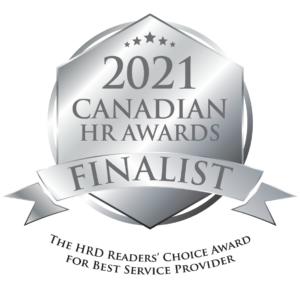COVID-19 has had a profound effect on businesses and their employees. Both are being forced to adapt to rapid changes in the economic and employment landscape. It is critical for businesses to understand these changes and react proactively whenever possible. Fortunately, the government has provided a plethora of relief/support options to help curtail the economic impact of the pandemic.
What does the extension of the “COVID-19 period” mean for you?
In response to the COVID-19 pandemic, the Ontario government created a regulation that changed certain Employment Standards Act (ESA) rules during the “COVID-19 period”. This regulation has been amended, extending the COVID-19 period to January 2, 2021.
This extension is welcome news for employers. Many businesses were scrambling to recall their employees to work or make alternate arrangements before September 4, 2020, when the original “COVID-19 period” was set to end.
Before the new Regulation 228/20, the ESA set out clear time limits for temporary layoffs. Employers could put employees on a temporary layoff for a maximum of 13 weeks (within a 20-week period). If employers met certain conditions, such as continuing an employee’s benefits during the layoff period, the layoff could be extended to up to 35 weeks in a 52 week period. Within these time limits, an employee could remain on temporary layoff without it being considered a termination. However, if the employee was not recalled to work before the end of these periods, their employment would be deemed to be terminated as of the first day of the layoff, activating an employee’s entitlements to Notice/Termination Pay and Severance Pay under the ESA.
Now, these time limits will not begin to run until after the COVID-19 Period ends on January 2, 2021. This means that employers who, at this time, are not able to recall their employees to work, or return them to their regular hours/wages, do not need to worry about termination obligations under the ESA, the costs of which can be significant. Instead, these employees will continue to remain on Infectious Disease Emergency Leave.
The changes to the ESA do not automatically mean that an employee who has been told to remain at home or had their hours or wages reduced without their consent has no recourse. Although the Regulation clearly removes the right of an employee to claim constructive dismissal under the ESA, it does not explicitly remove an employee’s right to pursue a claim of constructive dismissal at common law.
Therefore, it is recommended that employers obtain the consent of employees before laying them off or reducing their hours or pay and, in the future, be proactive by including temporary layoff provisions in their contracts.
Here are a few notes on non-unionized employee rights that have been extended during the Covid-19 period:
▪ An employee whose employer has temporarily reduced or eliminated their hours of work for reasons related to COVID-19 is deemed to be on a job-protected infectious disease emergency leave. Employees at businesses that have fully reopened continue to have job protection through the Infectious Disease Emergency Leave if they need to stay home to isolate or quarantine or take care of a loved one due to COVID-19. This includes parents who decide not to send their children back to school due to concerns about COVID-19.
▪ An employee is not considered to be laid off if their employer temporarily reduces or eliminates their hours of work or wages for reasons related to COVID-19.
▪ An employee is not considered to be constructively dismissed under the ESA if their employer temporarily reduces or eliminates their hours of work or wages for reasons related to COVID-19.
▪
An employee whose employer has temporarily reduced or eliminated their hours of work for reasons related to COVID-19 is deemed to be on a job-protected infectious disease emergency leave. Employees at businesses that have fully reopened continue to have job protection through the Infectious Disease Emergency Leave if they need to stay home to isolate or quarantine or take care of a loved one due to COVID-19. This includes parents who decide not to send their children back to school due to concerns about COVID-19.
▪
An employee is not considered to be laid off if their employer temporarily reduces or eliminates their hours of work or wages for reasons related to COVID-19.
▪
An employee is not considered to be constructively dismissed under the ESA if their employer temporarily reduces or eliminates their hours of work or wages for reasons related to COVID-19.
These measures do not apply to unionized employees as the government has encouraged them to work closely with their employers to resolve such issues.
CEWS and CEBA Re-Design and Extension
On Sept 23rd, two of the more popular announcements with respect to employers included the extension and redesign of the Canadian Emergency Wage Subsidy (CEWS) program, as well as the expansion of the Canada Emergency Business Account (CEBA).
The CEWS supports Canadian employers who have seen a drop in revenue due to COVID-19 and may be eligible for a subsidy to cover part of employee wages, retroactive to March 15. This subsidy will enable you to re-hire workers, help prevent further job losses, ease you back into normal operations and ultimately mitigate pandemic related costs. The program will now be extended to the summer of 2021, expanding eligibility to all businesses that were losing revenue. Any decrease in revenue now gets you in for the subsidy, which is now geared to the magnitude of your revenue decrease. This opens up eligibility to many new organizations and businesses, that might not have previously been able to obtain the support. The program covers a percentage of an employer’s payroll, based on his or her revenue loss.
Are you eligible for the CEWS? Find out by clicking here:
https://www.canada.ca/en/revenue-agency/services/subsidy/emergency-wage-subsidy.html
In addition, the Canada Emergency Business Account (CEBA) which currently provides interest-free loans of up to $40,000 to small businesses and not-for-profits, with a certain part being forgivable, was expanded. The application deadline was extended from August 31 to October 31, 2020. CEBA supports businesses by providing financing for their expenses that cannot be avoided or deferred as they take steps to get through revenue decline or closure.
Learn more about CEBA here: https://ceba-cuec.ca/
What do you need to know regarding the new changes to the Canadian Emergency Response Benefit (CERB)?
The Canada Emergency Response Benefit (CERB) gives financial support to employed and self-employed Canadians who are directly affected by COVID-19. These are difficult times for many.
After helping millions of Canadians who lost income due to the pandemic, CERB is coming to an end. As of Sept. 27th, 2020, a (temporarily) new-and-improved Employment Insurance (EI) program will support about half of Canadians currently on CERB, while a set of temporary benefits will try to catch at least some of those who don’t currently qualify for EI.
More than 2 million people currently on CERB will be eligible for EI, to some extent because the government is allowing one-time hours-worked credits so that the minimum insurable hours to qualify are only 120. EI recipients will receive at least as much as they did on CERB, if not more, as the minimum weekly payout has been increased to $500.
Employees transitioning from CERB to EI and trying to figure out whether they are eligible for EI might be reaching out to you for an ROE. Employees require a record of employment from their previous employer, and at least 120 hours of work to qualify. Unlike CERB, employees need a record of employment (ROE) for EI to prove they’ve been laid off.
When it comes to sickness benefits, the temporary recovery benefit for sickness is specifically for COVID-19 and pays out for up to two weeks, so anyone needing longer-term sickness coverage will need to go through the EI program.
The government is also offering up another program called Working While on Claim, supporting those employees that have resumed working, but at a lower wage than before they lost work. It’s administered through Service Canada and is technically a part of the EI program.
Canada Emergency Commercial Rent Assistance (CECRA)
One program that has not been amended yet is the Canada Emergency Commercial Rent Assistance (CECRA), which provides rent relief to small business. Although many are optimistic it will, the change can’t come soon enough. One of its shortcomings is that it fails to cover many small businesses due to its stringent eligibility criteria and the requirements that landlords apply. The business community had been asking the government to find another way to distribute unused funding to hard-hit businesses. Rent is the number one fixed cost for small businesses so to have more accessible support to rent relief would be a big win for business owners.
For more information regarding Covid-19 related best practices and legislative updates, or to schedule a complimentary HR consultation, please give us a call at 1-800-674-3471 or via email at inquiries@peakperformancehr[dot]com
Schedule A Call or Inquiry

Lisa Kay & PPHR in the Media
Based in Toronto and serving Mississauga, Oakville, Richmond Hill, Vaughan, Brampton, Hamilton, Aurora & Newmarket, Peel Region and Ontario. PPHR is an HR Outsourcing Company in various industries, including software development HR Outsourcing Company, information technology (IT HR Outsourcing), power, utilities HR Outsourcing and manufacturing HR Outsourcing.

